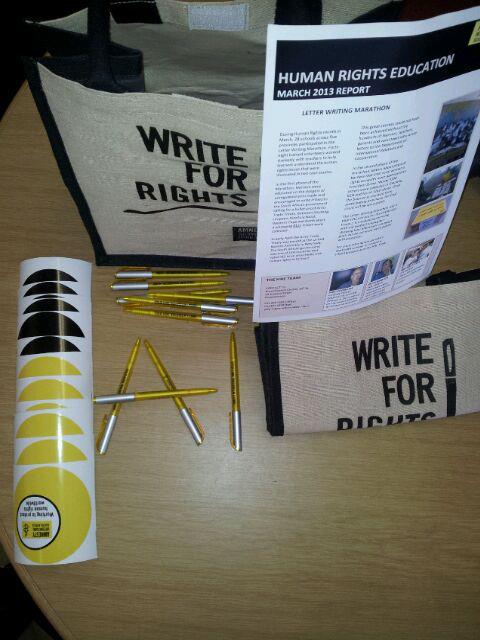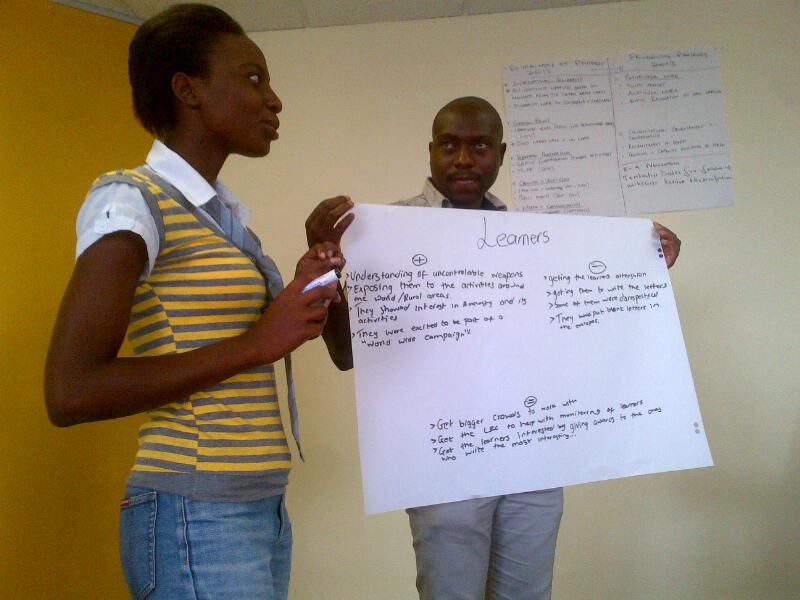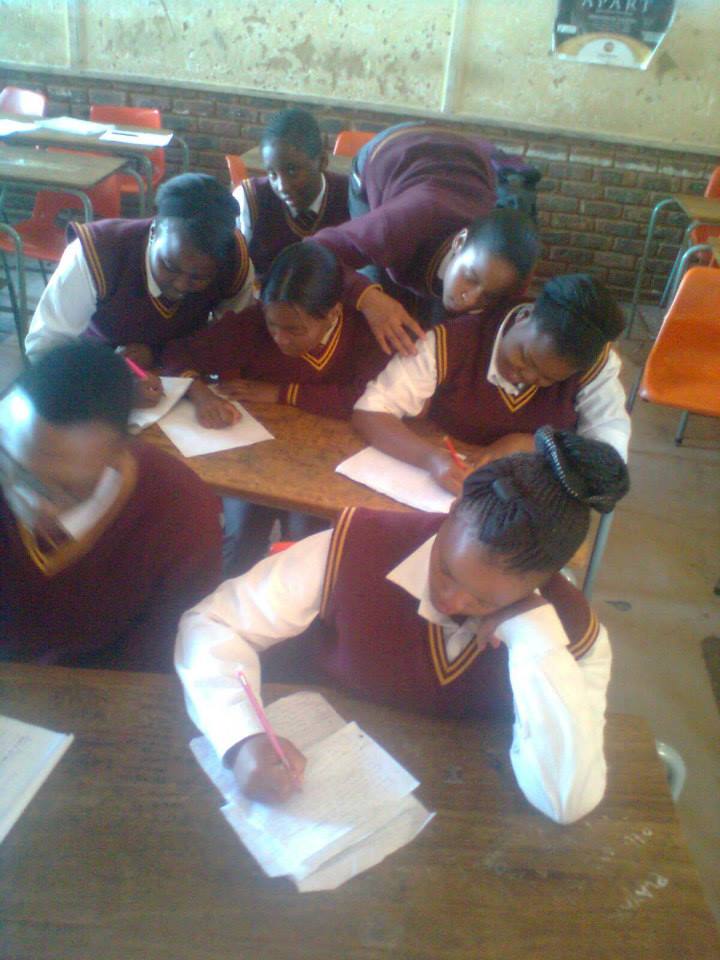Jabu Tugwana, Human Rights Education Officer at Amnesty International South Africa, shares how they collected 15,000 actions for the Letter Writing Marathon through human rights education activities.
Interview conducted by Emilie White, HRE Network & Communications Coordinator in the IS HRE team on 23 May 2013, online, for the International HRE Network News:
EMILIE: Hello, this is Emilie White for the HRE Network News; I am talking with Jabu Tugwana, the Human Rights Education Officer in Amnesty International South Africa and she has just been involved in the Letter Writing Marathon of March 2013 in South Africa and she has collected over 15,000 actions for the Letter Writing Marathon so Jabu why don’t you tell us all about it.
JABU: Thank you Emilie, we did a Letter Writing Marathon in South Africa during the month of March because in South Africa that is Human Rights month and we engaged other 20,000 learners in five provinces in South Africa and 28 schools were involved.
For us, this was a wonderful opportunity for Amnesty to showcase how we can use Human Right Education to strengthen campaigning and we were able to do that through the involvement of volunteers, that are also known as multipliers, who were assigned to the schools that were part of the Marathon.

We had over 60 multipliers working with the 28 schools; eight of the schools that were involved were primary schools and the rest were high schools. We worked on two cases, one was on women rights and the other was on the Arms Trade Treaty.
What was really interesting about the letter writing was that the Arms Trade Treaty got the most actions which was an unexpected outcome, especially because most of the letters were written by children in rural areas.
The other really wonderful thing about the letter writing was that we were able to engage with schools that we have never worked with before and in that way, the section’s work with schools was able to grow.
One really important lesson from this experience is the way in which you can use letter writing to engage with schools that are in places where Amnesty does not have presence or visibility. And in this way, Amnesty and the Human Rights Movement in itself can grow.

One of the lessons that we learnt thought participation methodology was that we can talk about the human rights violations that are happening in neighbouring countries, educate young people about them and empower other young people in those countries on those issues and it can also work in reverse. We can go into those same countries with really soft human rights issues and start to build respect for human rights within those environments.
EMILIE: And you were telling me also that you had an evaluation at the end with all those people who took part and can you tell us how you worked that out.
JABU: Throughout the Letter Writing Marathon, we used participatory methodologies. We had two workshops; one workshop was the actual training on letter writing where we helped the multipliers understand what the letter writing is, how to write the letters, and how to do presentations in schools with learners on the human rights issues that were involved.
At the end of the letter writing, we had a participatory evaluation where we used tape and we pasted it on the floor; we drew three lines: one line was a neutral line, another was a positive line and the third line was the negative line. We asked questions in the formal statements and the statements were posed when everyone was standing on the neutral line and if people agreed with the statement: for example “if the Letter Writing Marathon was useful or was successful” step forward onto the positive line or “if the Letter Writing Marathon was not useful or you disagree with the statement” you step back.

This was a wonderful way of pulling responses from the multipliers who were directly engaged with the letter writing because it’s fun, it’s engaging and it’s anonymous. The way that we did it was that the facilitators did not facilitate that particular session, and it was also great because over and above getting a picture of the feet in relation to where they were standing, you were also able to ask clarifying questions so we were able to collect a fair amount of data out of it.
EMILIE: Excellent, well that sounds like another methodology to add to the mix and great that you also do check how things go at the end and work out an evaluation with all those involved. I’m looking forward to hearing more from your human rights education activities in South Africa and thank you for telling us about your human rights education work in the Letter Writing Marathon.
Learn more about Amnesty International South Africa’s Human Rights Education work! For further information follow Amnesty International South Africa on Facebook
Subscribe to the Human Rights Education blog series
Header picture: Learners pose with two Amnesty International South Africa multipliers at Mosupatsela High School. ©Amnesty International


